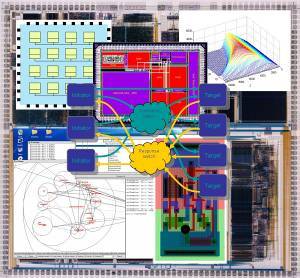
Vision Statement
“ Making the Environment Aware
of the Disabled”
Disabled people in our society need to be acutely aware of their environment. Whether they are limited in walking, perhaps wheelchair users, or blind or partially sighted, or deaf, they have to consider far more than fully able people what hazards the environment can present to them.
We can change all of that. We can, if we wish, make the environment aware of the person. Each individual can carry a tag which, through development of established principles, can tell the local physical environment of their needs. Then, written warning signs can speak to the blind. Stairs can become ramps for wheelchairs. Doors can open in the right way. Difficult paths, if not already smoothed, can warn of their difficulties.
It can all go so much further. High supermarket shelves can lower on automatic request. Road crossings can ensure that the disabled person is across, and has not fallen. Lifts can obey voice commands. Buses can stop, or even go to look for the disabled person who may not have got to the stop. The step can lower to just the right height, or a few words can direct the blind to an available seat.
The key to all of this is to treat each person as an individual, with the same rights and needs as other individuals. They should not have to ask for all of these things; technology can sense their presence and help them quickly, efficiently and without needing to be asked, other than by a silent smart tag.
The challenge is this: to unify a national system, and make it available in a cost-effective and timely manner. All of the above could be realised now – I hope researchers will add many more targets to these very basic goals. The problem is, they are not done, because the costs would be too high. It’s time to change that. Innovation, invention and research will all be needed to make a unified approach work for all.
Significance
- 1) This has far reaching impact on academia, industry and the public, who will ultimately have to pay.
- 2) The criteria for success will be general acceptance – possibly in the form of an Act of Parliament mandating such provision.
- 3) Microelectronics is just a part, albeit an essential part, of the whole. The markets would be so large that even the biggest players would have to take notice, while the smallest could also contribute.
- 4) The public would be part of the work! Public acceptance will be essential; but who will not accept such a clearly worthy cause.
- 5) Academia can be seen to work for the public good. Industry can make profits, while also seen as working in a worthy cause. Society benefits by making the disabled more independent to live their own lives, without having to ask for each door to be opened for them, both figuratively and literally.
Scale
- 6) Such a project would clearly appeal to most countries in Western Europe, the USA and Japan. Costs may be a problem, but again the economies of scale would help.
- 7) This project could split into many smaller, short term, manageable packets of projects. There would be no other way; it should grow organically with the imaginations of the engineers involved.
- 8) Electronics, acoustics, mechanics; it is hard to think of an engineering discipline which will not be needed.
Timeliness
- 9) Short term versions of some aspects are already in place, but what is needed is an overall look at the many problems, and a universal approach, to bring down costs. It could be argued that the research element may be low; but then why does this not exist already? It is because it has never been addressed as a national or international problem, more as an expensive local help facility, and patchily at that.
- 10) Costs will be the big driver. Can society afford to help all of its citizens, not just the wealthy? For far too long, electronics has favoured those with disposable income for electronic toys. Even the home PC owes its development to computer games, and not to real benefits for those who need them. Now is the time to really leverage electronics for the benefit of all, and especially the benefit of those who need that extra help.
- 11) There really are no overall risks. Who can deny the virtue of the scheme? A modular design approach, with overall themes, can ensure that each piece will slot into place as systems develop and are improved. If there is a risk, it is that bureaucracy and standards will be overdone, ensuring high costs and lengthy delays. The need is now, and the themes should be simple, cheap and effective.
Peter H. Saul, Saul Research, 13.10.2004

